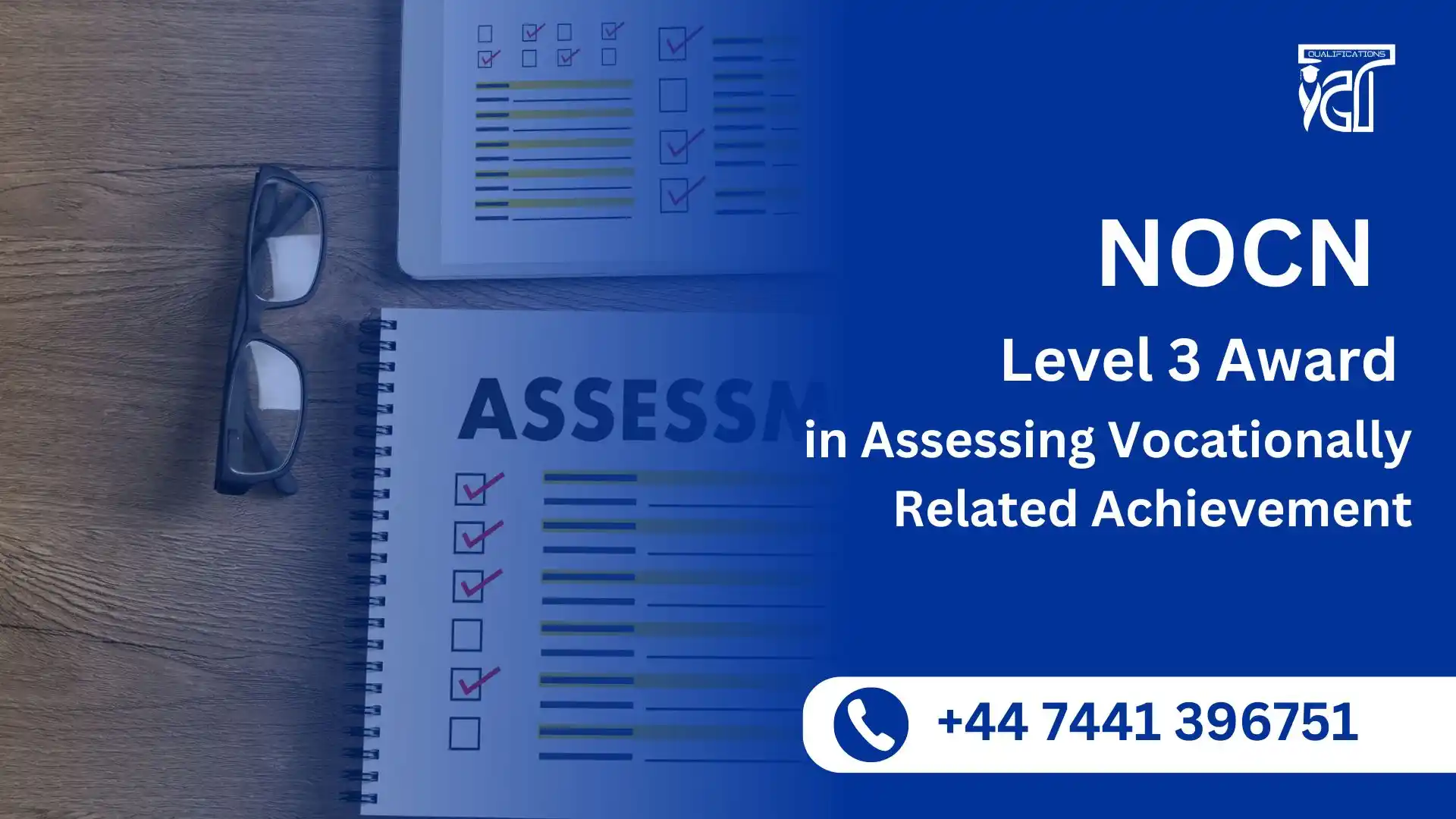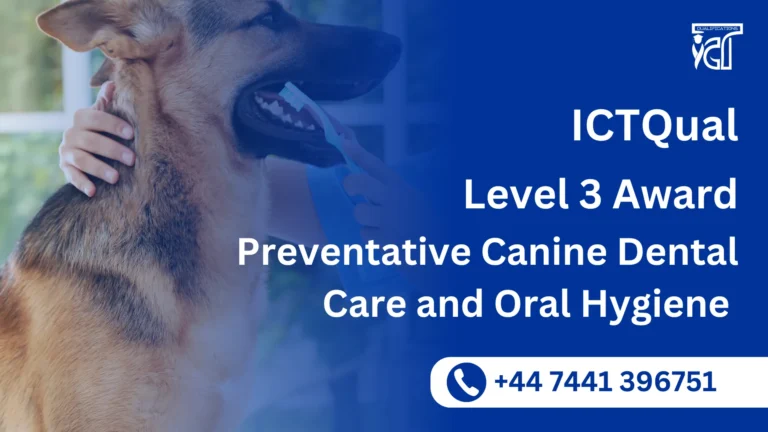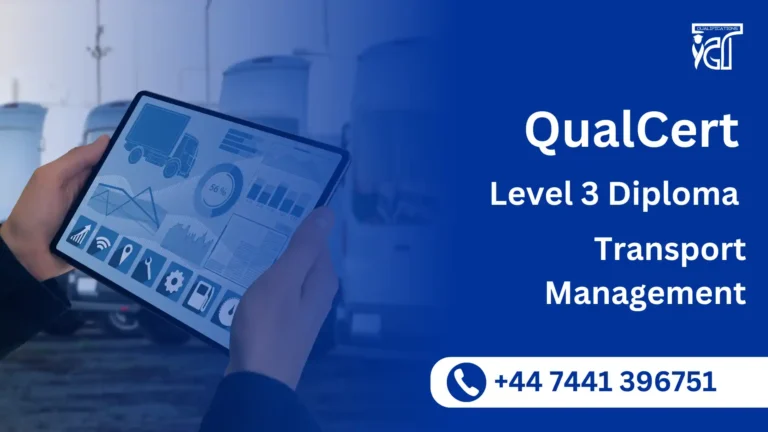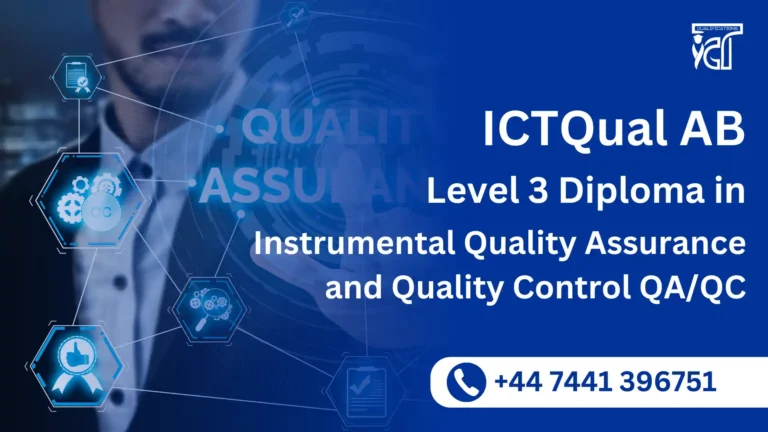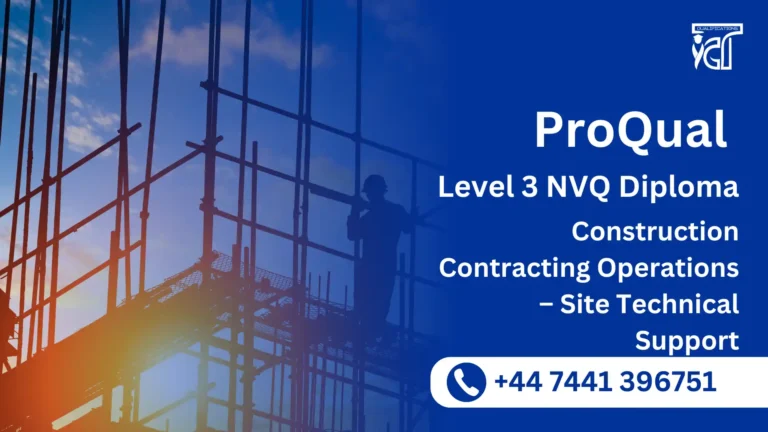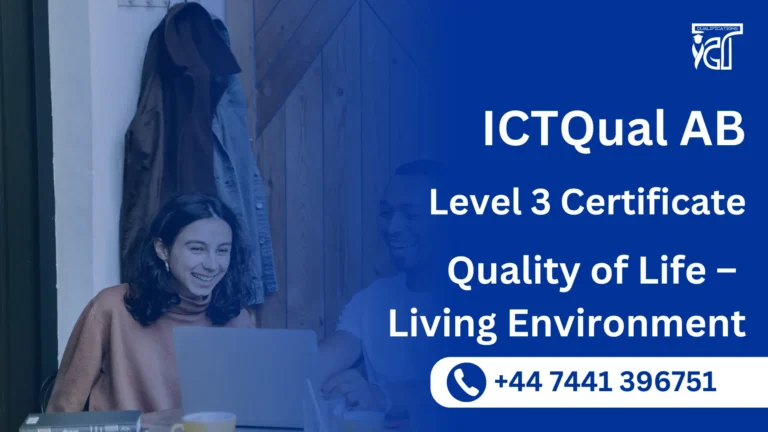The NOCN Level 3 Award in Assessing Vocationally Related Achievement offers a valuable opportunity to gain the skills and knowledge required to assess vocational qualifications. This Ofqual-regulated qualification is ideal for individuals who want to assess learners in vocational contexts but prefer a flexible, assignment-based approach to learning.
The NOCN Level 3 Award in Assessing Vocationally Related Achievement is designed for professionals who want to develop the skills and understanding necessary to assess vocationally related qualifications. The qualification focuses on assessing learners in environments that are not directly linked to the workplace, such as classrooms, training centres, or online learning platforms.
Unlike practical qualifications like the CAVA (Level 3 Certificate in Assessing Vocational Achievement), the Level 3 Award is ideal for those who want to build their theoretical knowledge of assessment methods and practices. This qualification is entirely assignment-based, allowing you to study at your own pace while applying the knowledge to real-life scenarios.
The NOCN Level 3 Award in Assessing Vocationally Related Achievement is an excellent qualification for those looking to formalize their knowledge of vocational assessment. With its flexible, assignment-based learning structure, it is perfect for individuals who prefer to gain knowledge at their own pace while applying their learning to real-world scenarios.
NOCN Level 3 Award in Assessing Vocationally Related Achievement
The NOCN Level 3 Award in Assessing Vocationally Related Achievement qualification has a Total Qualification Time (TQT) of 90 hours and is worth 9 credits. The qualification is awarded upon completion of all mandatory units.
Mandatory units
| Sr# | Unit Title |
|---|---|
| 1 | Assess vocational skills, knowledge and understanding |
| 2 | Understanding the principles and practices of assessment |
GLH (Guided Learning Hours) and TQT (Total Qualification Time) are terms commonly used in vocational qualifications to help define the amount of time a learner is expected to spend on heir studies.
1. GLH (Guided Learning Hours)
GLH refers to the number of hours a learner spends being directly taught, supervised, or supported during their course. This includes the time spent in activities such as:
- Classroom instruction
- Practical workshops
- One-on-one tutoring or mentoring sessions
- Online learning sessions with tutor support
In other words, GLH represents the time that learners are actively engaged with their instructors or learning activities.
2. TQT (Total Qualification Time)
TQT represents the total amount of time a learner is expected to invest in completing a qualification, including:
- GLH (Guided Learning Hours): Time spent on direct learning, as explained above.
- Self-Directed Learning: This includes time spent on independent study, research, assignment completion, preparation for exams, and any other work the learner does outside of direct teaching hours.
TQT is a broader measure that includes all the time required to achieve the qualification. It helps learners and employers understand the overall commitment required for the qualification.
Key Differences Between GLH and TQT:
- GLH focuses on direct learning with guidance or supervision.
- TQT includes GLH as well as independent study time and other learning-related activities.
Example:
If a qualification has a TQT of 600 hours and a GLH of 250 hours, it means the learner should spend 250 hours in direct learning (classroom, online, or tutor-led sessions) and 350 hours on independent study or research.
Learning Outcomes of NOCN Level 3 Award in Assessing Vocationally Related Achievement
Understand the principles of vocational assessment
- Understand the purpose of assessing vocational skills, knowledge, and understanding
- Explain how assessment supports learning and development in vocational contexts
- Identify the different assessment methods used in vocational education and training
Understand the requirements for assessing vocational achievement
- Understand the standards and criteria used to assess vocational skills and knowledge
- Recognize the importance of assessing against defined learning outcomes and assessment criteria
- Know how to assess vocational achievement effectively within a specified context
Understand the planning and preparation for vocational assessment
- Explain the importance of planning assessment activities to ensure they meet vocational standards
- Identify the steps involved in preparing for the assessment process, including gathering necessary materials and resources
- Understand the need to assess learners’ prior knowledge, skills, and experience before conducting assessments
Understand the principles of evidence collection and decision-making in vocational assessment
- Explain how to gather valid, reliable, and sufficient evidence for assessment decisions
- Understand how to make fair, consistent, and transparent assessment decisions
- Identify different types of evidence used in vocational assessment and how they relate to the assessment criteria
Understand the role of feedback in vocational assessment
- Explain the importance of providing constructive, timely feedback to learners
- Understand how feedback supports learners’ development and enhances learning
- Identify best practices for delivering feedback in a clear, supportive, and motivational way
The NOCN Level 3 Award in Assessing Vocationally Related Achievement is an essential qualification for those involved in assessing vocational qualifications. It provides a solid foundation in the theory and principles of assessment, equipping you with the knowledge to assess vocationally related achievements in a range of educational settings.
Recognised and Regulated Qualification
- Ofqual-regulated: This qualification is accredited by Ofqual, ensuring it meets high standards and is recognised across the UK
- Industry standard: Widely accepted by employers and awarding bodies, making it a trusted qualification in the education and training sector
Flexible, Assignment-Based Learning
- 100% assignment-based: You will complete assignments that test your understanding and application of assessment theory, with no exams required
- Self-paced: Study at your own pace and around your existing work commitments, with support from tutors and resources
- Accessible: Ideal for learners balancing work, family, or other commitments, with flexible delivery options
Career Advancement Opportunities
- Gateway to assessor roles: This qualification is a stepping stone for those wishing to pursue further qualifications, such as the Level 3 Certificate in Assessing Vocational Achievement (CAVA)
- Increased employability: Having this qualification enhances your CV, providing evidence of your understanding of assessment principles and your ability to assess vocationally related achievement
Develop Key Professional Skills
- Enhance assessment knowledge: Gain a deep understanding of assessment methods, planning, evidence gathering, and decision-making
- Improved feedback skills: Learn how to deliver constructive feedback that supports learners’ development and achievement
- Critical thinking: The qualification helps develop analytical and decision-making skills, ensuring assessments are fair and consistent
This qualification not only increases your ability to assess vocational achievement but also positions you for further professional development in the assessment field.
The NOCN Level 3 Award in Assessing Vocationally Related Achievement is designed for professionals seeking to gain a thorough understanding of the principles and practices of assessing vocational qualifications. It is ideal for those working, or planning to work, in environments where vocational learning and achievement are assessed. The ideal learner for this qualification will have specific characteristics, experience, and goals that align with the requirements and objectives of the course.
Aspiring Vocational Assessors
- Individuals new to assessing: Those who want to start a career as an assessor in vocational education, training, or apprenticeships
- Looking to formalise assessment skills: Ideal for professionals who want to develop a theoretical understanding of assessment methods and practices without the need for immediate practical assessment experience
- Seeking career advancement: Those looking to progress into a qualified assessor role, laying the foundation for future qualifications such as the Level 3 Certificate in Assessing Vocational Achievement (CAVA)
Vocational Trainers and Educators
- Teachers and trainers: Individuals working in vocational education and training (VET) sectors, such as those teaching apprenticeships or vocational qualifications
- Supporting learners: Vocational tutors who want to understand the process of assessing learners’ achievements, ensuring they meet the relevant standards and criteria
- Focused on learner progression: Trainers who aim to improve their feedback and assessment practices to enhance learner development and success
HR Professionals and Workplace Trainers
- In-house training specialists: HR professionals or trainers within organisations responsible for assessing the learning and development of employees
- Vocational trainers: Those working in workplace-based training who wish to formalise their assessment skills and improve the quality of assessments for their staff
- Preparing for external assessments: Those involved in preparing employees for external assessments and ensuring that internal assessments align with industry standards
Learners Preferring Flexible, Knowledge-Based Learning
- Assignment-based learning: The course is ideal for individuals who prefer coursework and assignments over exams
- Self-paced study: Learners who need flexibility in terms of study time, balancing personal and professional commitments
- Critical thinkers: Learners who are comfortable engaging with theoretical content, applying assessment principles to real-life vocational scenarios
Professionals with English Proficiency
- Good command of English: Learners must have a solid understanding of written and spoken English to complete assignments and engage with course materials
- CEFR Level B2 or equivalent is recommended for non-native speakers
This qualification is perfect for anyone looking to enhance their vocational assessment knowledge, whether in education, training, or workplace environments. It provides the theoretical knowledge needed to progress in the field of vocational assessment, paving the way for further professional development.
Entry Requirements
Register Now
Qualification Process
Qualification Process NOCN Level 3 Award in Assessing Vocationally Related Achievement
- Self-Assessment:
Begin by evaluating your eligibility to ensure you meet the qualification requirements, including work experience, knowledge, and language proficiency. - Registration:
Complete your registration by submitting the required documents, including a scanned copy of a valid ID, and paying the registration fee. - Induction:
An assessor will conduct an induction to confirm your eligibility for the course and explain the evidence requirements. If you do not meet the criteria, your registration will be canceled, and the fee will be refunded. - Assignments & Evidence Submission:
Provide all assignments and the necessary evidence based on the assessment criteria outlined in the course. If you are unsure of the required evidence, consult with the assessor for guidance on the type and nature of evidence needed. - Feedback and Revision:
The assessor will review your submitted evidence and provide feedback. Evidence that meets the criteria will be marked as “Criteria Met,” while any gaps will be identified. You will be asked to revise and resubmit if needed. - Competence Evidence:
Submit final evidence demonstrating that all learning outcomes have been met. This evidence will be marked as “Criteria Met” by the assessor once it is satisfactory. - Internal Quality Assurance (IQA):
The Internal Quality Assurance Verifier (IQA) will review your evidence to ensure consistency, quality, and compliance with standards. - External Verification:
The IQA will submit your portfolio to NOCN External Quality Assurance Versifier (EQA) for final confirmation. The EQA may contact you directly to verify the authenticity of your evidence. - Certification:
Upon successful completion of all checks, NOCN will issue your official certificate, confirming that you have attained the NOCN Level 3 Award in Assessing Vocationally Related Achievement

